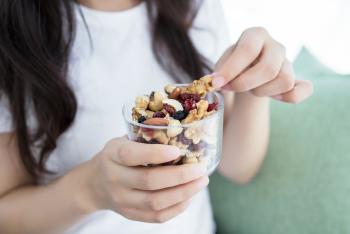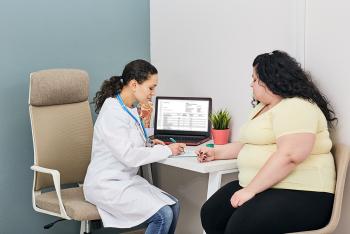Mindful snacking after bariatric surgery can help maintain steady blood sugar levels and support...
Read More
Once your bariatric procedure is over and the healing process has begun, you will need to adjust to a whole new way of eating. Because your stomach will have changed in shape and size, portion control will play a critical role in your diet. This means you should eat smaller and more frequent meals to ensure you receive a range of vital nutrients.
In the initial weeks following surgery, your digestive system can only tolerate liquids, followed by pureed/blended foods, then soft foods. Following a staged diet for the first four weeks after surgery will help your stomach heal.
Stages include:
Portion control is key to a healthy diet after surgery. You may have to adjust to eating small meals throughout the day instead of three big meals to limit your portions and avoid weight gain or complications post-surgery.
Note: This is a general guide. Please contact your Registered Dietitian or bariatric coordinator for more specific information on what you should eat after your procedure.
If you don’t incorporate enough protein into your diet after a bariatric procedure, you may experience protein-deficiency symptoms such as weakness, poor wound healing or hair loss. Your body cannot store protein for long, which is why it’s key to get enough protein at each meal. Protein shakes are a great way to get your required protein in daily, especially when you are on a liquid diet.
Those who have had bariatric surgery may be more sensitive to foods high in fat and sugar and can develop “dumping syndrome” if those foods are consumed. Dumping syndrome happens when your stomach rapidly empties its contents into your small intestine and can result in uncomfortable side effects such as diarrhea, nausea, lightheadedness or fatigue after a meal.
In general, the following foods and drinks should be avoided or limited after a bariatric procedure:
As part of the bariatric surgery program, Inspira provides nutrition counseling and support groups to help you grow accustomed to your new diet.
During one-on-one counseling, a registered dietitian will guide you through your post-operative diet progression, monitor your nutrition to prevent early complications and help you implement a vitamin and mineral supplement regimen. Long-term, nutrition counseling serves as another layer of support and education to help you sustain lifestyle and behavior changes to support continued weight loss or maintenance.
Inspira’s nutrition support groups help patients encourage, motivate, educate, validate, celebrate and rededicate their nutrition goals after surgery.

Mindful snacking after bariatric surgery can help maintain steady blood sugar levels and support...
Read More
Choosing to undergo weight loss surgery is a significant and deeply personal decision. For those...
Read More
The bariatric support network at Inspira Health helps empower individuals as they prepare for...
Read More
The material set forth in this site in no way seeks to diagnose or treat illness or to serve as a substitute for professional medical care. Please speak with your health care provider if you have a health concern or if you are considering adopting any exercise program or dietary guidelines. For permission to reprint any portion of this website or to be removed from a notification list, please contact us at (856) 537-6772